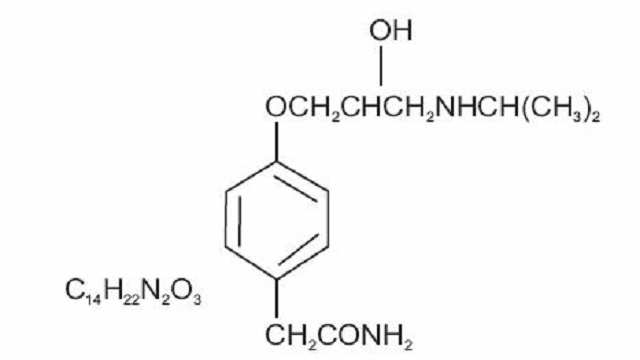Atenolol
This drug is included in the beta-blocker group, useful for lowering high blood pressure and helping to prevent strokes, heart attacks, and kidney disorders. After consuming this drug, the heart and blood vessels in the body become better.
- Drug Class: Beta-blocker drugs.
- Drug Category: Prescription drugs.
- Indications: Treating high blood pressure and complications caused by high blood pressure.
- Pregnancy and Breastfeeding Category:
Category D
There is evidence of risk to the fetus. However, the drug may still be used if the drug is needed to treat a life-threatening condition or serious illness, for which safer drugs cannot be used or are ineffective.
- Drug Form: Pills, tablets, and liquids
Benefits of Atenolol
The most common benefit of consuming this medicine is to treat high blood pressure and other diseases caused by high blood pressure. This medicine can be useful in blocking epinephrine in the heart and blood vessels. Finally, heart rate, blood pressure, and pressure on the heart can be reduced.
Some other benefits are:
- Helps prevent stroke.
- Prevent heart attacks.
- Prevent kidney disorders.
- Relieves chest pain (angina).
- Maintaining survival after a heart attack.
Atenolol Dosage
The dosage division of this drug consumption depends on the condition that occurs. Here is the explanation:
Emergency treatment of cardiac arrhythmia:
- Adult dose: 2.5 mg injected intravenously at a rate of 1 mg/minute, repeated every 5 minutes if necessary with a maximum of 10 mg.
Acute myocardial disorders:
- Adult dose: 5-10 mg injected intravenously at a rate of 1 mg/minute, given within 12 hours of chest pain. This is followed by an oral dose of 50 mg approximately 15 minutes later.
Hypertension:
- Adult dosage: 50-100 mg/day given orally once. Titrate the dose based on the patient’s response.
Angina pectoris:
- Adult dosage: 50-100 mg taken orally daily, in single or divided doses.
How to Use Atenolol
This medication is taken orally or intravenously, depending on your doctor’s instructions. For oral use, this medication is usually taken 1-2 times a day. Use this medication regularly to get the best results.
Some other things to note include:
- Avoid eating or drinking apples/oranges within 4 hours of taking this medication.
- If medication is used to treat chest pain, make sure to take it regularly.
- It takes 1 to 2 weeks for the benefits to be felt.
Atenolol Usage Precautions
There are several conditions that need to be considered and be careful before taking this drug, such as:
- Suffering from diabetes mellitus.
- Have peripheral vascular disease.
- Suffering from bronchospasm or problems with the respiratory tract.
- Having psoriasis and thyroid disease.
- Have kidney problems.
Also, avoid stopping taking this medication suddenly. Be sure to talk to your doctor first before doing so.
Atenolol Side Effects
Consumption of this drug can cause side effects in the form of a cold body. This is due to reduced blood flow to the hands and feet. Be sure to avoid smoking, as it can worsen this effect.
Atenolol Interactions
There are several drugs that can cause interactions when taken together with Atenolol, namely:
- Diltiazem: Increased risk of hypotension, bradycardia, and heart failure.
- Amlodipine: Increased blood pressure lowering effect.
- Clonidine Increases the risk of hypotension and cardiac arrhythmias.
- NSAIDs: Decreased effect of these drugs.
Atenolol Contraindications
There are several conditions in which it is not recommended to take this drug, namely:
- Hypotension.
- Bradycardia.
- Severe peripheral arterial disease.
- Cardiogenic shock.
- Metabolic acidosis.
- Uncompensated heart failure.

